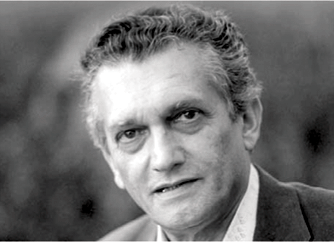Celso Furtado (1920-2004)

One of the most saintly Brazilians I ever knew. I do not mean that in any demeaning sense. He simply had a searing ascetic quality about him—lean and angular. I first met him when he was in exile in the U.S. after the coup of 1964.
I was a small fish in the shark tank of the Harvard faculty. Celso came on a lecture tour. He was already famous as an economic history teacher and the architect of an ambitious plan to develop Brazil’s lagging Northeast.
He was a skilled lecturer, an outstanding mind, and an example of the deep influences of French culture on Brazilian life. Raised in the Northeast, as a young man he joined the “Brazilian Expeditionary Force” to battle the Wehrmacht in Italy. He quickly distinguished himself as a luminary of the younger generation in Recife, Pernambuco. He set himself quite a challenging task: to modernize Brazil’s vast but economically backward Northeast. His first version had the characteristically Brazilian title “Operation Northeast.”
It was an intricate plan, which included massive organization and funding. It was probably doomed from the outset. The regional political power was dominated by lazy landowners who owned acres of low productive sugar fields—once peopled by millions of slaves whose descendants now toiled in miserable conditions. The present day owner ruled with an iron hand and did not welcome young idealists like Furtado. Changing the Northeast was equivalent to moving mountains and rivers. Tough going.
Furtado was vilified by the powerful landowners and by the national rightwing press (O Globo and Estado de São Paulo.). Although praised in Albert Hirschman’s widely read Journeys Toward Progress (a premature judgment), his plan hardly made a dent. Even though buoyed by Kubitschek’s lofty rhetoric, it was a much harder job than opening Volkswagen factories in São Paulo. The other problem was that Celso was a better planner than a manager. Organization was chaotic, hardly helped by the corrupt culture of the surrounding society.
Leaving the Northeast, Furtado headed for Brasília and Rio to become Minister of Planning. There he fared little better, not surprising because it was an era of high inflation and balance of payments crises.
In retirement Celso published a series of remarkable books analyzing his country’s economic and political problems. I collected them all. They were elegantly written in a sparse style, showing signs of his years in France.
My last encounter with Celso was at a lively party given by a mutual friend in Ipanema. As he was getting ready to leave, I asked if I could catch a ride. “Não tem problema” he said. We climbed into his battered VW bug, and he reached across me to remove a car alarm from the glove box. I thought it ironic that this notably pacific intellectual should need such a device—but it was an era when “a cidade maravilhosa” was quite crime infested.
Celso Furtado was a man before his time. With a few more years he could have been a star of the Cardoso/Lula years. Nonetheless he was a great Brazilian and I was proud to have had him as friend.
Further Readings
Furtado, Celso. The Economic Growth of Brazil: A Survey from Colonial to Modern Times. Berkeley: University of California Press, 1963.
Furtado, Celso. Obstacles to Development in Latin America. Garden City, N.Y.: Anchor Books, 1970.
Furtado, Celso. Accumulation and Development: The Logic of Industrial Civilization. New York: St. Martin's Press, 1983.
Celso Furtado was born in Pombal, Paraíba. A distinguished economist, he contributed significantly to the creation of economic structuralism, which heavily influenced the United Nations Economic Commission for Latin America and the Caribbean (ECLAC). After entering into politics, Furtado worked as Minister of Planning under the Goulart presidency in 1961. He was later appointed Minister of Culture by the Sarney government in 1985. In 2004, Furtado was nominated for the Nobel Prize in Economics.

